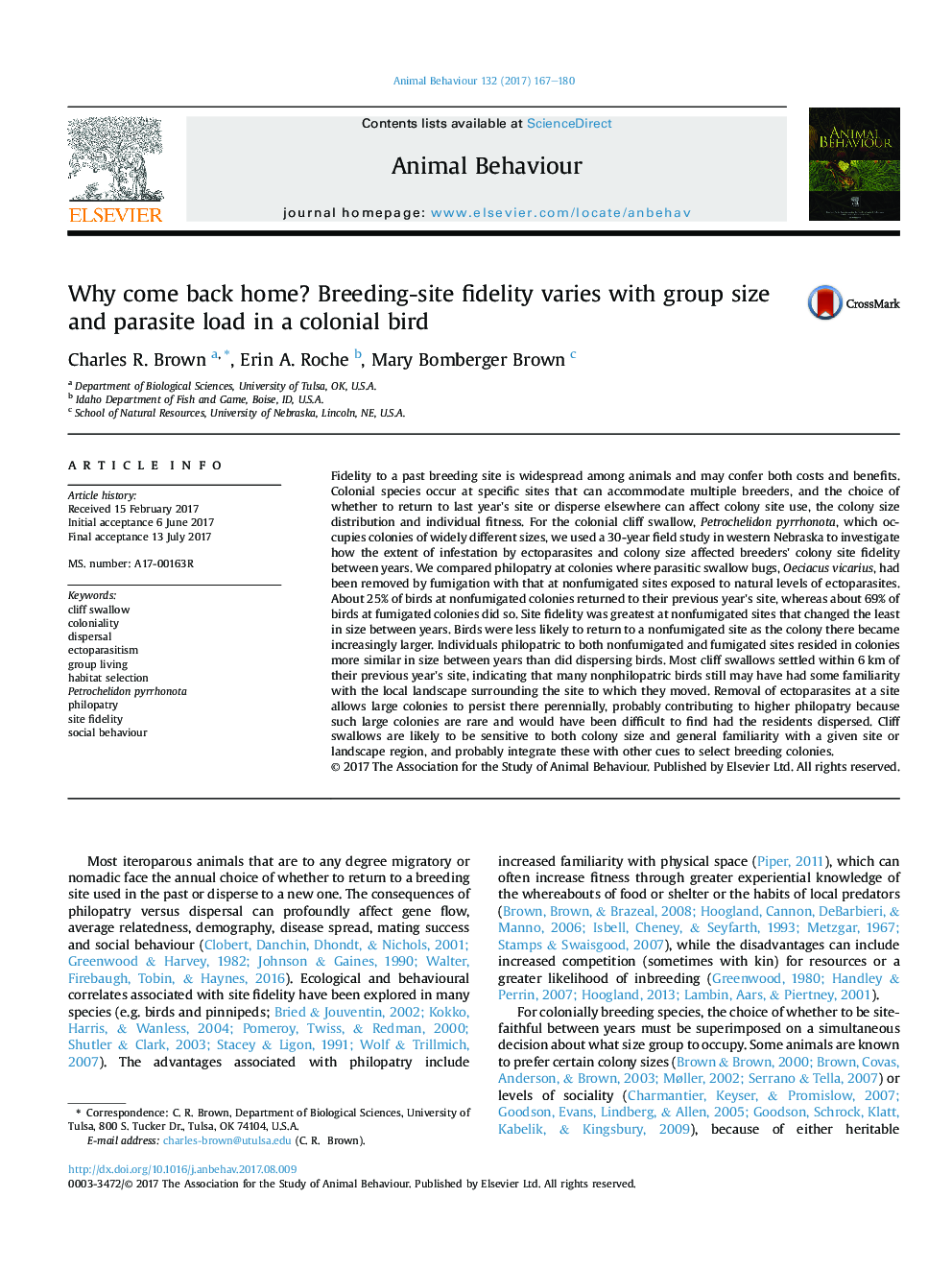| کد مقاله | کد نشریه | سال انتشار | مقاله انگلیسی | نسخه تمام متن |
|---|---|---|---|---|
| 5538291 | 1552196 | 2017 | 14 صفحه PDF | دانلود رایگان |
عنوان انگلیسی مقاله ISI
Why come back home? Breeding-site fidelity varies with group size and parasite load in a colonial bird
ترجمه فارسی عنوان
چرا به خانه برگشت؟ وفاداری سایت اصلاح شده با اندازه گروه و بار انگل در پرنده استعماری متفاوت است
دانلود مقاله + سفارش ترجمه
دانلود مقاله ISI انگلیسی
رایگان برای ایرانیان
کلمات کلیدی
موضوعات مرتبط
علوم زیستی و بیوفناوری
علوم کشاورزی و بیولوژیک
علوم دامی و جانورشناسی
چکیده انگلیسی
Fidelity to a past breeding site is widespread among animals and may confer both costs and benefits. Colonial species occur at specific sites that can accommodate multiple breeders, and the choice of whether to return to last year's site or disperse elsewhere can affect colony site use, the colony size distribution and individual fitness. For the colonial cliff swallow, Petrochelidon pyrrhonota, which occupies colonies of widely different sizes, we used a 30-year field study in western Nebraska to investigate how the extent of infestation by ectoparasites and colony size affected breeders' colony site fidelity between years. We compared philopatry at colonies where parasitic swallow bugs, Oeciacus vicarius, had been removed by fumigation with that at nonfumigated sites exposed to natural levels of ectoparasites. About 25% of birds at nonfumigated colonies returned to their previous year's site, whereas about 69% of birds at fumigated colonies did so. Site fidelity was greatest at nonfumigated sites that changed the least in size between years. Birds were less likely to return to a nonfumigated site as the colony there became increasingly larger. Individuals philopatric to both nonfumigated and fumigated sites resided in colonies more similar in size between years than did dispersing birds. Most cliff swallows settled within 6Â km of their previous year's site, indicating that many nonphilopatric birds still may have had some familiarity with the local landscape surrounding the site to which they moved. Removal of ectoparasites at a site allows large colonies to persist there perennially, probably contributing to higher philopatry because such large colonies are rare and would have been difficult to find had the residents dispersed. Cliff swallows are likely to be sensitive to both colony size and general familiarity with a given site or landscape region, and probably integrate these with other cues to select breeding colonies.
ناشر
Database: Elsevier - ScienceDirect (ساینس دایرکت)
Journal: Animal Behaviour - Volume 132, October 2017, Pages 167-180
Journal: Animal Behaviour - Volume 132, October 2017, Pages 167-180
نویسندگان
Charles R. Brown, Erin A. Roche, Mary Bomberger Brown,
